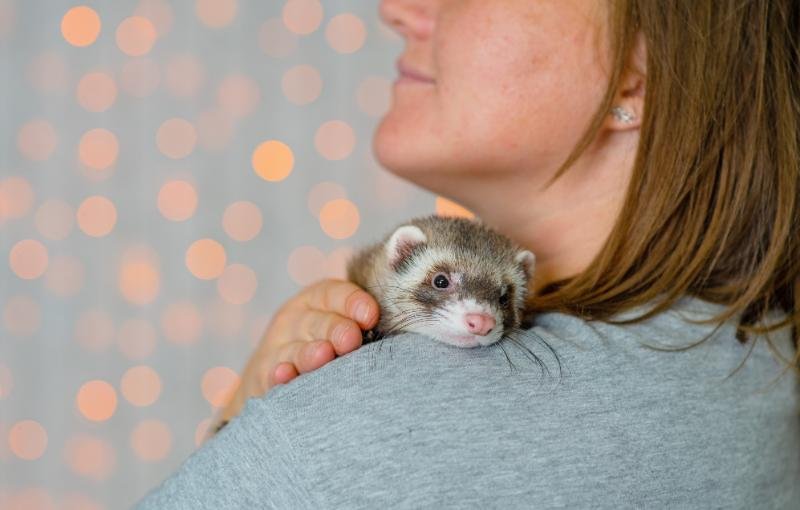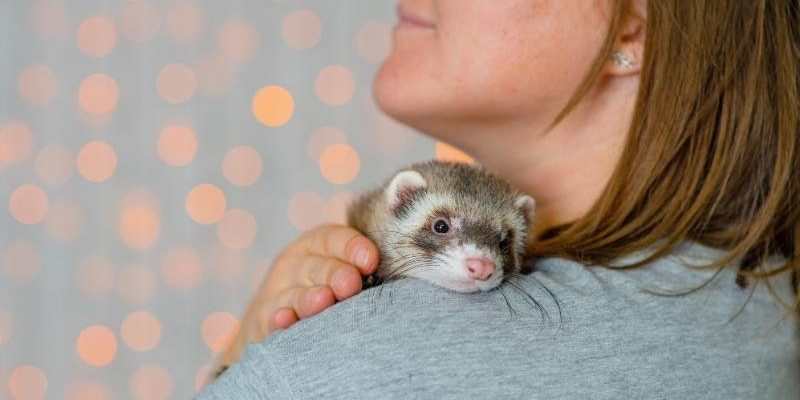
Imagine ferrets as nature’s little ninjas. They are agile, stealthy, and always up for a challenge. This article dives into their diet and hunting strategies, revealing how these animals thrive in the wild and what that means for ferret enthusiasts who may want to replicate similar feeding practices at home. Let’s explore what makes ferrets such effective predators!
What Do Ferrets Eat?
Ferrets are obligate carnivores, meaning their diet mainly consists of meat. In the wild, they hunt small animals like rodents, birds, and even insects. This diet is packed with protein, which is essential for their energy and overall health. You might be wondering how this translates to ferrets in captivity.
As pets, ferrets can thrive on high-quality commercial ferret food, which is designed to mimic their natural diet. Look for foods with a meat-based protein source listed first. Brands like Marshall Farms and Zupreem are popular in the ferret community for their balanced nutritional content.
Here are some common food options for ferrets:
- Commercial ferret foods: These are specially formulated to meet the nutritional needs of ferrets.
- Raw meat: Some ferret owners opt for a raw diet, including chicken, turkey, or even organs.
- High-protein treats: Small amounts of cooked eggs or freeze-dried raw meat can be excellent snacks.
Remember, while it’s tempting to share your leftovers, ferrets shouldn’t eat cooked bones or processed human foods.
Hunting Techniques of Ferrets
In the wild, ferrets employ a combination of agility and stealth to hunt their prey. They’re designed for sneaking around, thanks to their slender bodies and quick reflexes. When hunting, ferrets often use a method called “stalking.” This means they creep up on their target slowly, staying low to the ground to avoid detection.
Once they’re close enough, they launch themselves forward with explosive energy to catch their prey. It’s similar to watching a cat pounce on a toy mouse, and it speaks to their incredible physical capabilities. Honestly, if you’ve ever seen a ferret at play, you’ll know they’re just as agile with toys as they are with real prey!
Another interesting strategy is their ability to dig. Ferrets often follow the trails of their prey into burrows and dens. They’re great diggers, using their sharp claws to break through dirt or soft soil. This behavior is quite fascinating and illustrates how their hunting instincts remain sharp even in a domestic environment.
The Role of Scent in Hunting
Scent plays a crucial role in a ferret’s hunting strategy. Ferrets have a highly developed sense of smell, allowing them to locate prey even underground. Think of it like a bloodhound on a mission! This keen sense helps them track down animals that are hidden or camouflaged in their surroundings.
When ferrets catch a whiff of something interesting, they often follow the scent trail with great enthusiasm. This is why enriching their environment with different scents can stimulate them, keeping those instincts sharp even in a home setting. Consider using scents from toys, treats, or even herbal items to enhance their playful explorations around your house.
Additionally, ferrets communicate with each other using scents. They mark their territory and share information about food sources through their scent glands. This communal approach to hunting and feeding demonstrates the social nature of these animals, especially when they live in groups.
Hunting Behavior in Captivity
In captivity, ferrets might not need to hunt for their food, but their instincts remain strong. You might notice that they enjoy playing with toys that mimic prey, like stuffed animals or even small balls. This behavior is essential for their mental stimulation and physical exercise, keeping them healthy and happy.
You could set up a mini-hunting ground in your home. Hide treats or toys around the room and encourage your ferret to find them. This not only engages their natural hunting instincts but also provides them with a fun challenge. Plus, it’s a great way to bond with your pet as you watch them scurry around, nose to the ground!
It’s vital to keep in mind that diet and hunting go hand in hand. A ferret that gets to “hunt” for its food is more likely to be satisfied and engaged. This mimics the thrill of the chase they would experience in the wild, which leads to a happier and healthier pet.
Considerations for a Healthy Diet
Feeding your ferret a balanced diet is crucial for maintaining its health. You might be wondering what specific nutrients are important—let’s break it down.
Ferrets need a diet rich in protein and fat. Unlike humans, their bodies are designed to utilize protein more efficiently. About 30-35% of their diet should come from protein, while around 15-20% should be fat. Be cautious with carbohydrates; they don’t digest them well, so look for a diet that keeps these to a minimum.
It’s also important to consider the age and health of your ferret. Young ferrets might need more protein for growth, while older ferrets may require diets that support their health concerns. Consulting with a vet who specializes in ferrets is always a good idea when planning your pet’s diet.
Don’t forget to keep an eye on their water intake. Dehydration can lead to significant health issues, so fresh water should always be accessible.
The diet and hunting strategies of ferrets are fascinating reflections of their wild ancestry. Understanding these aspects of their behavior can help you provide a nurturing environment that mimics their natural instincts. Whether you opt for commercial ferret food, occasional raw treats, or set up fun hunting games at home, the key is to embrace their nature.
By taking insights from their wild habits, you can help foster a happy, healthy, and engaging life for your ferret. Your little ninja will thrive, and you’ll enjoy every moment of their joyful spirit and curiosity. After all, isn’t that what it’s all about?

